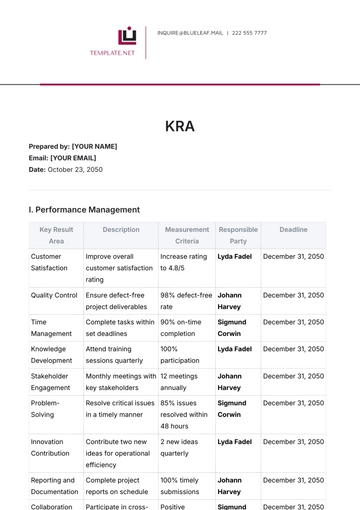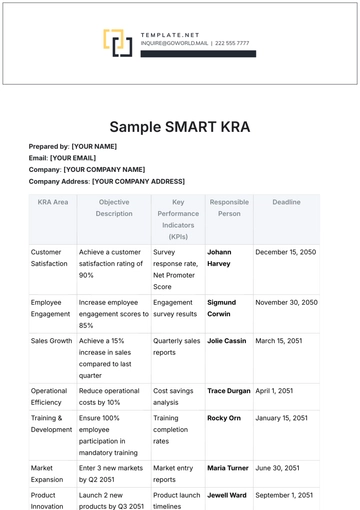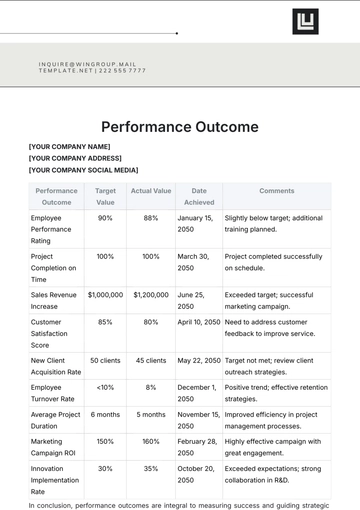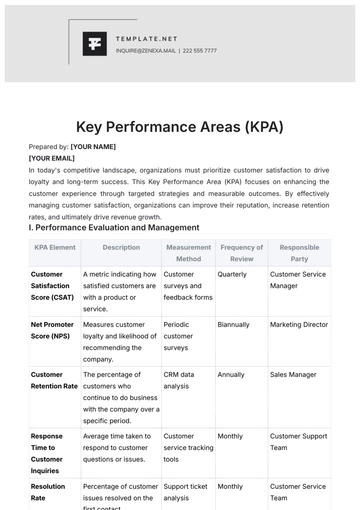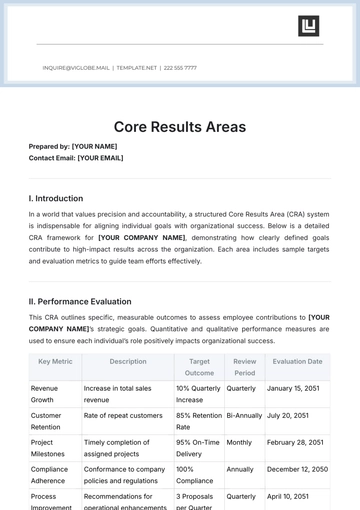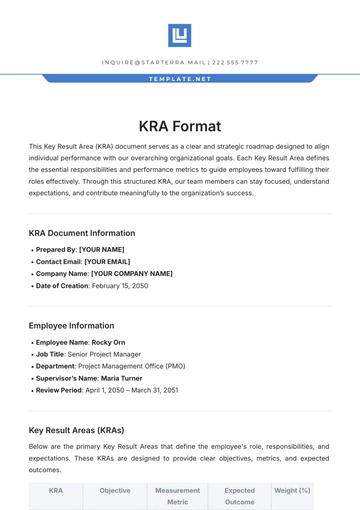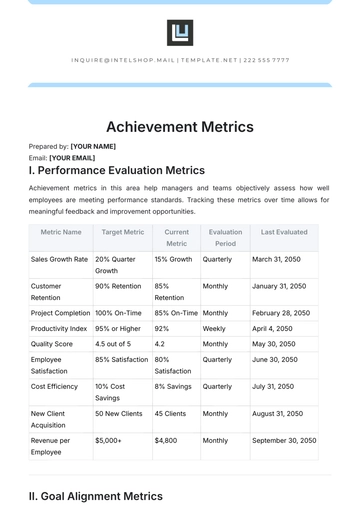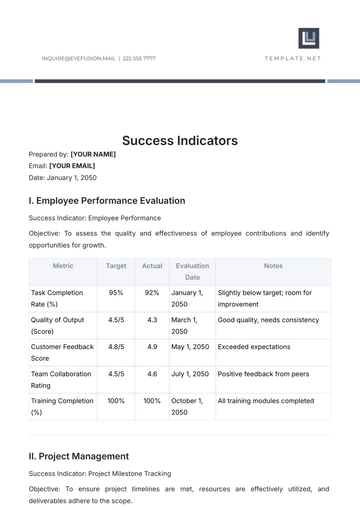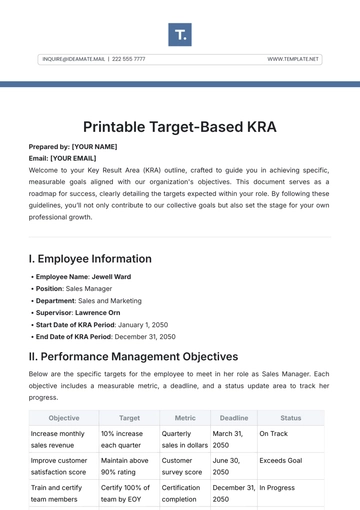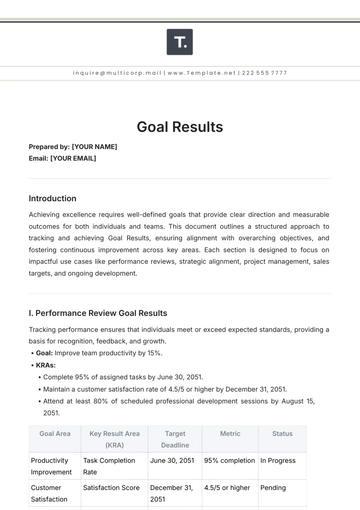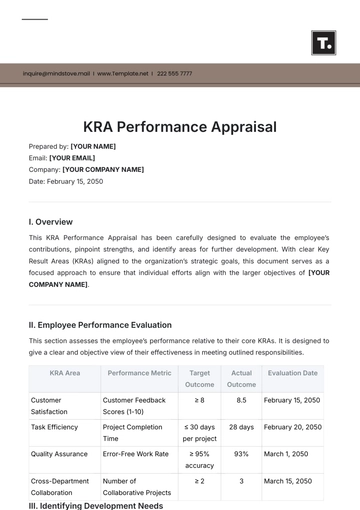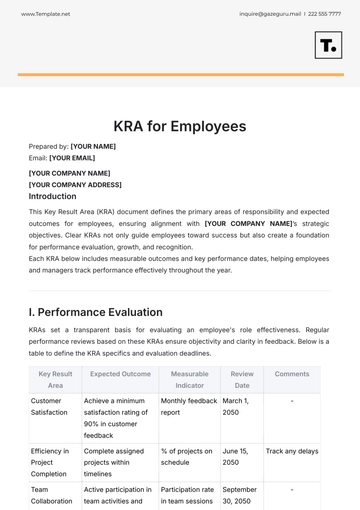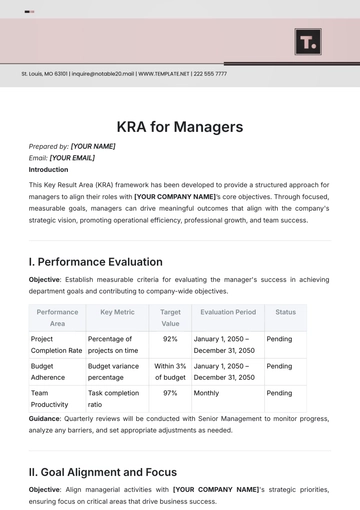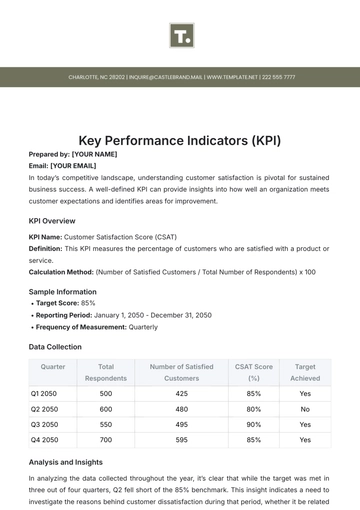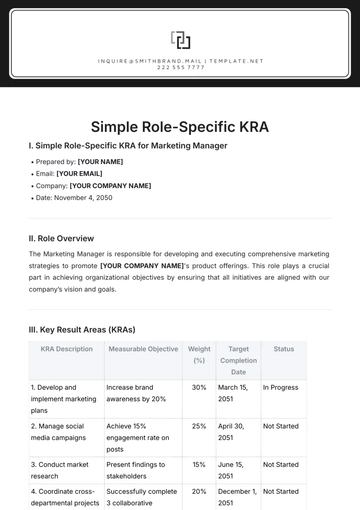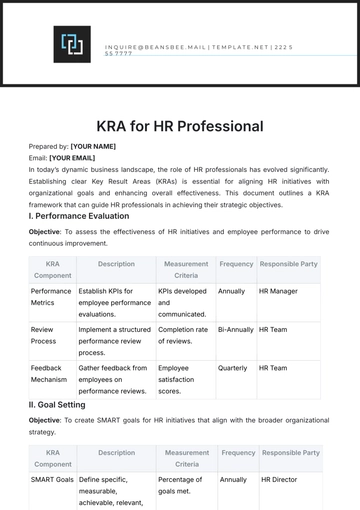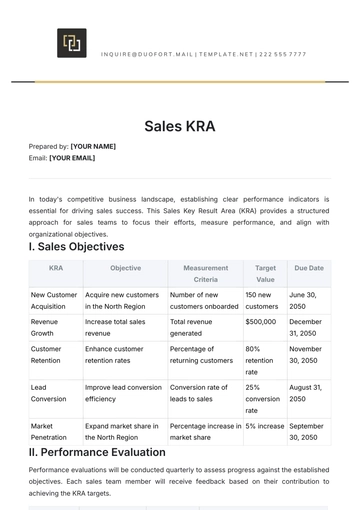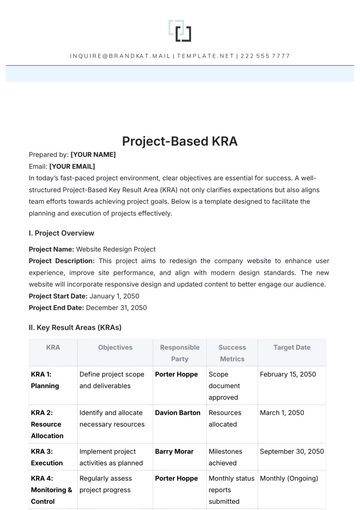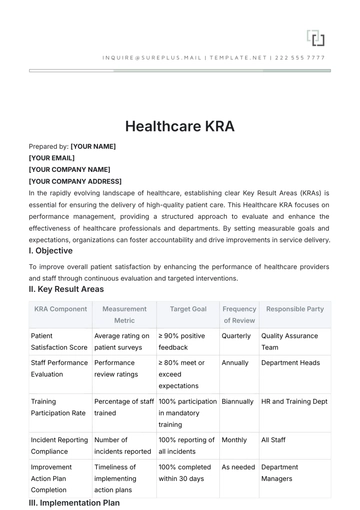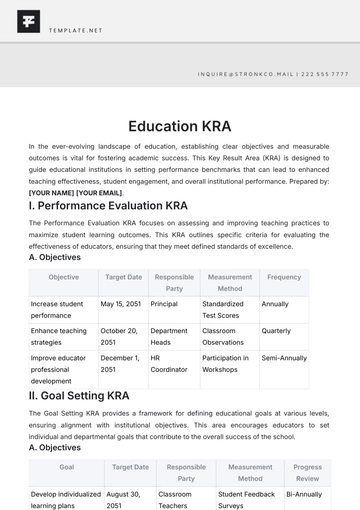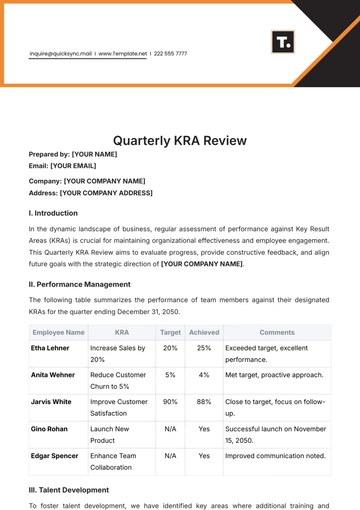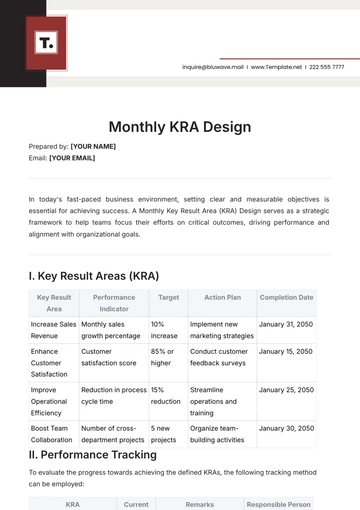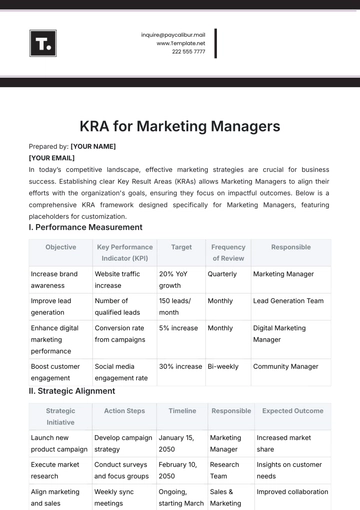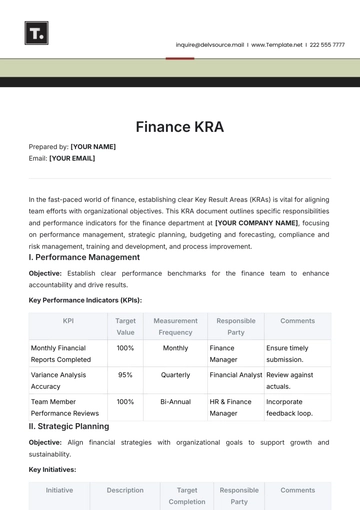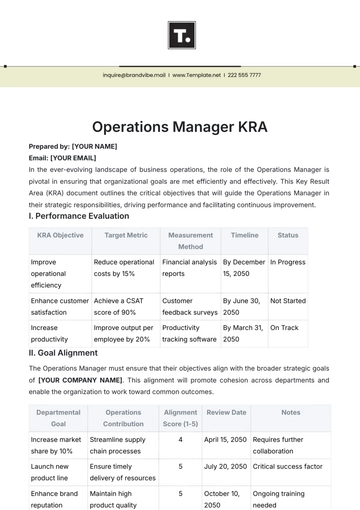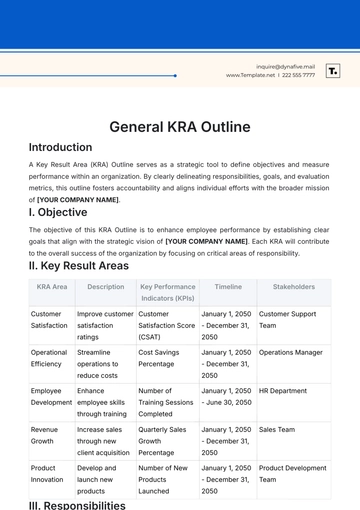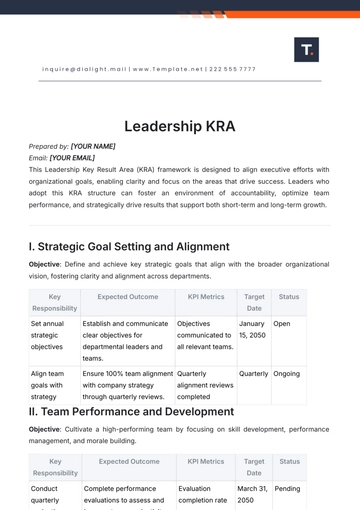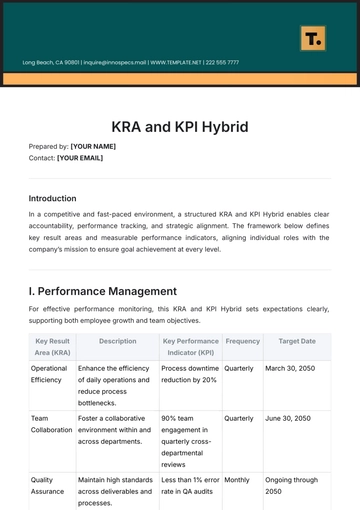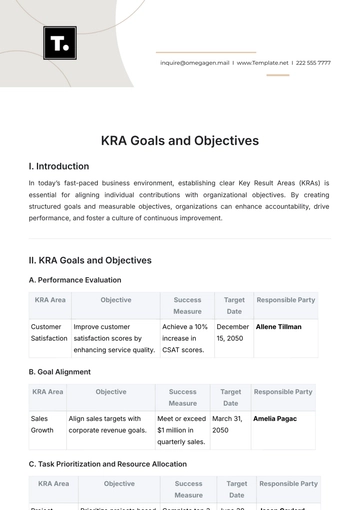Free Education KRA
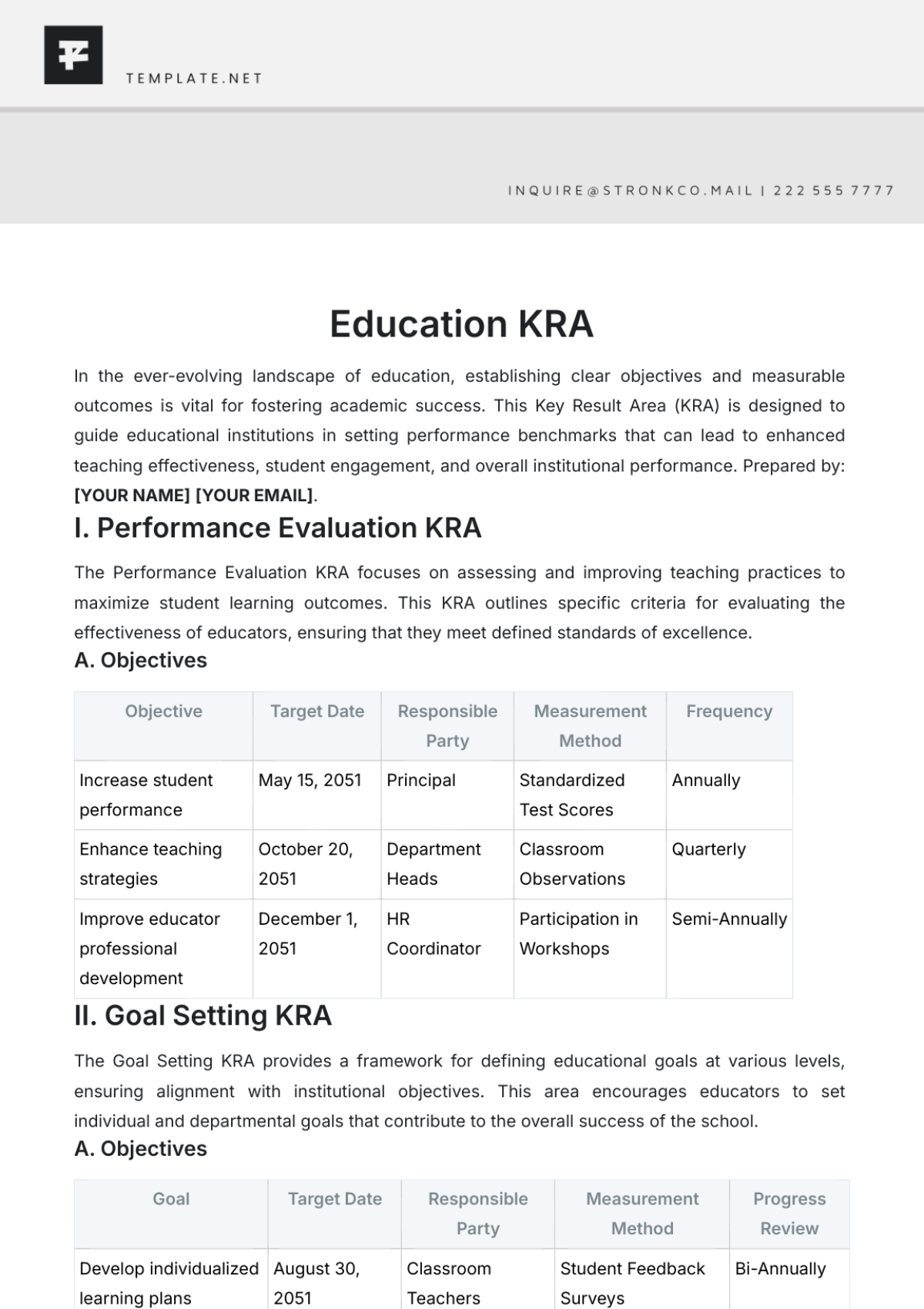
In the ever-evolving landscape of education, establishing clear objectives and measurable outcomes is vital for fostering academic success. This Key Result Area (KRA) is designed to guide educational institutions in setting performance benchmarks that can lead to enhanced teaching effectiveness, student engagement, and overall institutional performance. Prepared by: [YOUR NAME] [YOUR EMAIL].
I. Performance Evaluation KRA
The Performance Evaluation KRA focuses on assessing and improving teaching practices to maximize student learning outcomes. This KRA outlines specific criteria for evaluating the effectiveness of educators, ensuring that they meet defined standards of excellence.
A. Objectives
Objective | Target Date | Responsible Party | Measurement Method | Frequency |
|---|---|---|---|---|
Increase student performance | May 15, 2051 | Principal | Standardized Test Scores | Annually |
Enhance teaching strategies | October 20, 2051 | Department Heads | Classroom Observations | Quarterly |
Improve educator professional development | December 1, 2051 | HR Coordinator | Participation in Workshops | Semi-Annually |
II. Goal Setting KRA
The Goal Setting KRA provides a framework for defining educational goals at various levels, ensuring alignment with institutional objectives. This area encourages educators to set individual and departmental goals that contribute to the overall success of the school.
A. Objectives
Goal | Target Date | Responsible Party | Measurement Method | Progress Review |
|---|---|---|---|---|
Develop individualized learning plans | August 30, 2051 | Classroom Teachers | Student Feedback Surveys | Bi-Annually |
Foster collaborative learning environments | March 15, 2051 | All Staff | Peer Reviews | Quarterly |
Implement new curriculum initiatives | September 25, 2051 | Curriculum Coordinator | Implementation Reports | Monthly |
III. Curriculum Planning KRA
The Curriculum Planning KRA ensures that the curriculum is effective, relevant, and aligned with educational standards. This area focuses on the continuous improvement of the curriculum based on feedback from stakeholders.
A. Objectives
Objective | Target Date | Responsible Party | Measurement Method | Review Cycle |
|---|---|---|---|---|
Evaluate curriculum effectiveness | April 12, 2052 | Curriculum Committee | Student Performance Data | Annual Review |
Update curriculum materials | June 5, 2052 | Teachers | Curriculum Audit Report | Every 3 Years |
Integrate technology in the classroom | January 18, 2052 | IT Department | Technology Usage Surveys | Semi-Annually |
IV. Professional Development KRA
The Professional Development KRA identifies areas where educators need further training and support. This ensures that teachers are equipped with the latest knowledge and skills to enhance student learning experiences.
A. Objectives
Objective | Target Date | Responsible Party | Measurement Method | Evaluation Method |
|---|---|---|---|---|
Conduct needs assessment for training | July 20, 2051 | HR Coordinator | Survey Results | Annually |
Offer workshops on innovative teaching methods | November 30, 2051 | Professional Development Team | Workshop Attendance | After Each Workshop |
Monitor teacher performance post-training | February 10, 2052 | Principal | Performance Evaluations | Quarterly |
V. Accountability KRA
The Accountability KRA serves as a mechanism to ensure that all parties involved in the educational process are held accountable for their contributions to student success. This area reinforces the importance of transparency and responsibility within the educational community.
A. Objectives
Objective | Target Date | Responsible Party | Measurement Method | Reporting Frequency |
|---|---|---|---|---|
Create accountability frameworks | January 1, 2052 | Leadership Team | Accountability Reports | Quarterly |
Involve parents in performance reviews | April 5, 2052 | Parent-Teacher Association | Feedback Sessions | Bi-Annually |
Set clear expectations for student behavior | September 15, 2052 | All Staff | Behavioral Incident Reports | Monthly |
In conclusion, implementing a structured KRA framework is essential for educational institutions to achieve their strategic goals effectively. By defining clear objectives, measuring progress, and fostering accountability, schools can ensure a holistic approach to education that benefits students, educators, and the broader community.
- 100% Customizable, free editor
- Access 1 Million+ Templates, photo’s & graphics
- Download or share as a template
- Click and replace photos, graphics, text, backgrounds
- Resize, crop, AI write & more
- Access advanced editor
The Education KRA Template is a customizable and editable solution designed to streamline your educational goals. Available on Template.net, this template allows educators to easily track and assess key results areas. Utilize our AI Editor Tool to tailor the template to your specific needs, ensuring a perfect fit for your unique educational environment.
